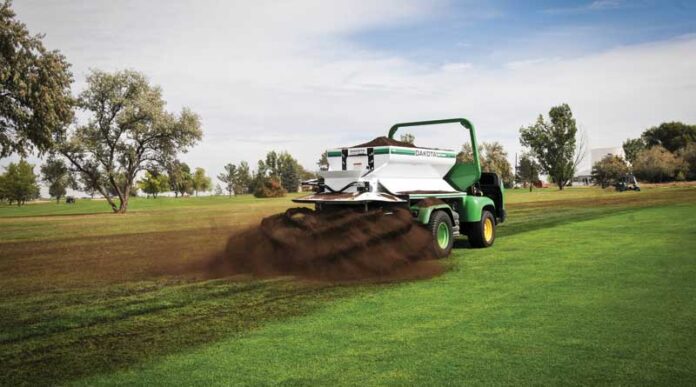Composting questions and answers
Founded in 1974, A1 Organics specializes in organic soils, certified composts and premium mulch and offers organic recycling services. The company processes and recycles more than 530,000 tons annually and sends more than 400,000 cubic yards of compost, mulch and soils to properties up and down Colorado’s Front Range.
Q. A1 Organics will celebrate its 50th anniversary next year. What has helped it last so long?
A. We spend a lot of time making the best product possible. We’re part of the U.S. Composting Council’s STA Certified Compost program. That means our compost is being tested, and we’re providing the data to customers so they know they’re getting the product they want. Volume is also a big deal. We can ship a few cubic yards or 5,000 cubic yards. If you have a big job, if you have a small job, we can do it. We also have four locations on the Front Range, we ship, and we have distribution partners, so we give people a lot of options to find us.
Q. What are the benefits of composting in Colorado?
A. Compost isn’t just for your garden; it’s a soil amendment. It has three very big benefits. The first one is water retention. Adding compost to Colorado soils increases water retention by 27,000 gallons per acre, per 1% of organic matter added. We must preserve our water resources, and compost is a great way to do that. The second benefit is biological. Getting microbiology back in soils is going to create healthier, stronger plants that can naturally defend against disease. It’s like adding microbes to your gut. And the third benefit is carbon sequestration. Healthy soils create healthy plants to sequester more carbon from the air.
Q. How often should compost be applied?
A. It takes time to build soil. Just applying compost in the fall is a great start. But you also have to build your soil back with multiple applications over a few years. That’s when you start seeing all the benefits. The extra water retention helps protect again the effects of drought. When the plants are healthy, you can back off on the fertilizer some. A study found that simply using compost twice a year helped knock out more than 95 percent of necrotic ring spot, which is a very common lawn disease. A big concern that’s going on in Colorado is the push to remove turf. Replacing non-essential turf can be beneficial if replaced with low-water landscape, not rock. Better soil and lawn management practices too—like using compost, turning off sprinklers when there’s a rain event, and smart irrigation systems—can reduce water inputs dramatically.









